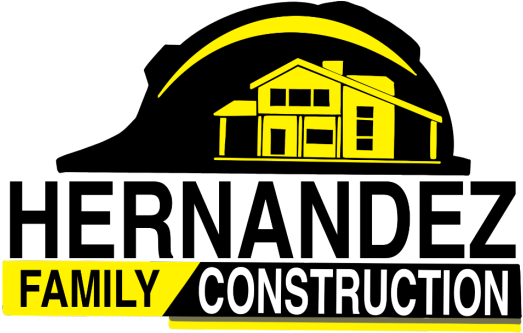Fixed Rate Mortgage vs Adjustable Rate Mortgage | Key Differences

Buying a home is one of the most significant financial decisions you'll make in your lifetime. One of the key choices you'll face is selecting the right type of mortgage. Understanding the difference between a fixed rate mortgage vs adjustable rate mortgage can help you make an informed decision that aligns with your financial goals.
In this article, we’ll explore the pros and cons of each mortgage type, factors to consider when choosing one, and other key aspects of mortgage financing, including first bank mortgage rates, loan qualifications, and mortgage approvals. Whether you're looking for a home loan or working with a mortgage broker in Charlotte, NC, this guide will provide valuable insights to make the best decision.
What is a Fixed Rate Mortgage?
A fixed rate mortgage is a home loan where the interest rate remains constant throughout the life of the loan. This means your monthly payments will stay the same, making it a predictable and stable option for homeowners.
Pros of a Fixed Rate Mortgage:
- Stable Payments: Since the interest rate doesn’t change, you can budget confidently, knowing exactly how much you'll pay each month.
- Long Term Savings: If you secure a low rate, you can save money over time, even if market rates increase.
- Best for Long Term Homeowners: If you plan to stay in your home for many years, a fixed rate mortgage provides long term financial security.
Cons of a Fixed Rate Mortgage:
- Higher Initial Interest Rate: Fixed rate mortgages usually have higher starting interest rates than adjustable rate mortgages.
- Less Flexibility: If interest rates drop significantly, you would need to refinance to take advantage of lower rates.
What is an Adjustable Rate Mortgage (ARM)?
An adjustable rate mortgage (ARM) is a loan where the interest rate fluctuates over time, usually based on a benchmark index. Most ARMs start with a lower fixed rate for an initial period (e.g., 5, 7, or 10 years) and then adjust periodically.
Pros of an Adjustable Rate Mortgage:
- Lower Initial Rate: ARMs often start with lower interest rates, making them an attractive option for short term homeowners.
- Potential Savings: If interest rates remain low or decrease, borrowers may save money compared to a fixed rate mortgage.
- Best for Short Term Homeowners: If you plan to sell or refinance within a few years, an ARM may offer initial cost savings.
Cons of an Adjustable Rate Mortgage:
- Unpredictable Payments: Once the fixed rate period ends, your monthly payments can increase based on market conditions.
- Risk of Higher Rates: If interest rates rise significantly, your payments could become unaffordable.
- Complex Loan Terms: ARMs come with various adjustment periods, caps, and indices that may be difficult to understand.
How to Choose Between a Fixed Rate and Adjustable Rate Mortgage
When deciding between a fixed rate mortgage vs adjustable rate mortgage, consider the following factors:
- Your Long Term Plans: If you plan to stay in your home for more than 10 years, a fixed rate mortgage is typically the safer option. However, if you expect to move within a few years, an ARM could be a more cost effective choice.
- Interest Rate Trends: Research first bank mortgage rates and other financial indicators to determine whether rates are expected to rise or fall in the near future.
- Risk Tolerance: If you prefer predictable payments and financial stability, a fixed rate mortgage is ideal. If you’re comfortable with some level of uncertainty and potential savings, an ARM might be worth considering.
- Loan Qualification and Approval Time: Many homebuyers wonder, how long should a mortgage approval take? The timeline varies depending on the lender, your credit score, and required documentation. Typically, mortgage approval takes anywhere from a few days to several weeks.
- Loan Qualification Requirements: If you're asking, how much mortgage loan do I qualify for?, the answer depends on your income, credit history, debt to income ratio, and the lender's criteria. A mortgage broker can help assess your qualifications and recommend suitable loan options.
The Role of Mortgage Brokers and Lenders
When securing a mortgage, you may work with either a mortgage broker or a mortgage lender. Understanding the difference between the two can help streamline your loan process.
Mortgage Broker vs. Mortgage Lender:
- Mortgage Broker: Acts as an intermediary between you and multiple lenders. They help find the best rates and terms but do not directly lend money.
- Mortgage Lender: A financial institution (e.g., a bank or credit union) that provides home loans directly to borrowers.
If you're located in North Carolina, working with a mortgage broker in Charlotte, NC, can help you compare multiple loan offers and secure the best financing option.
Final Thoughts
Choosing between a fixed rate mortgage vs adjustable rate mortgage depends on your financial goals, homeownership plans, and risk tolerance. A fixed rate mortgage offers stability and predictability, while an ARM provides initial savings with potential rate adjustments in the future.
To make the best decision, research first bank mortgage rates, understand how mortgage approval timelines work, and determine how much mortgage loan you qualify for. Consulting a mortgage broker vs. mortgage lender can also help you navigate the complexities of home financing.
At Hernandez Family Construction, we understand that securing the right home loan is just as important as building your dream home. Whether you're financing a new home or planning a construction project, our team is here to assist you with expert guidance and tailored solutions.
Ready to take the next step? Contact us today to discuss your home financing options and make your dream home a reality!

"Choosing between a fixed and adjustable rate mortgage isn’t just about interest rates—it’s about securing your financial future with the right loan."
